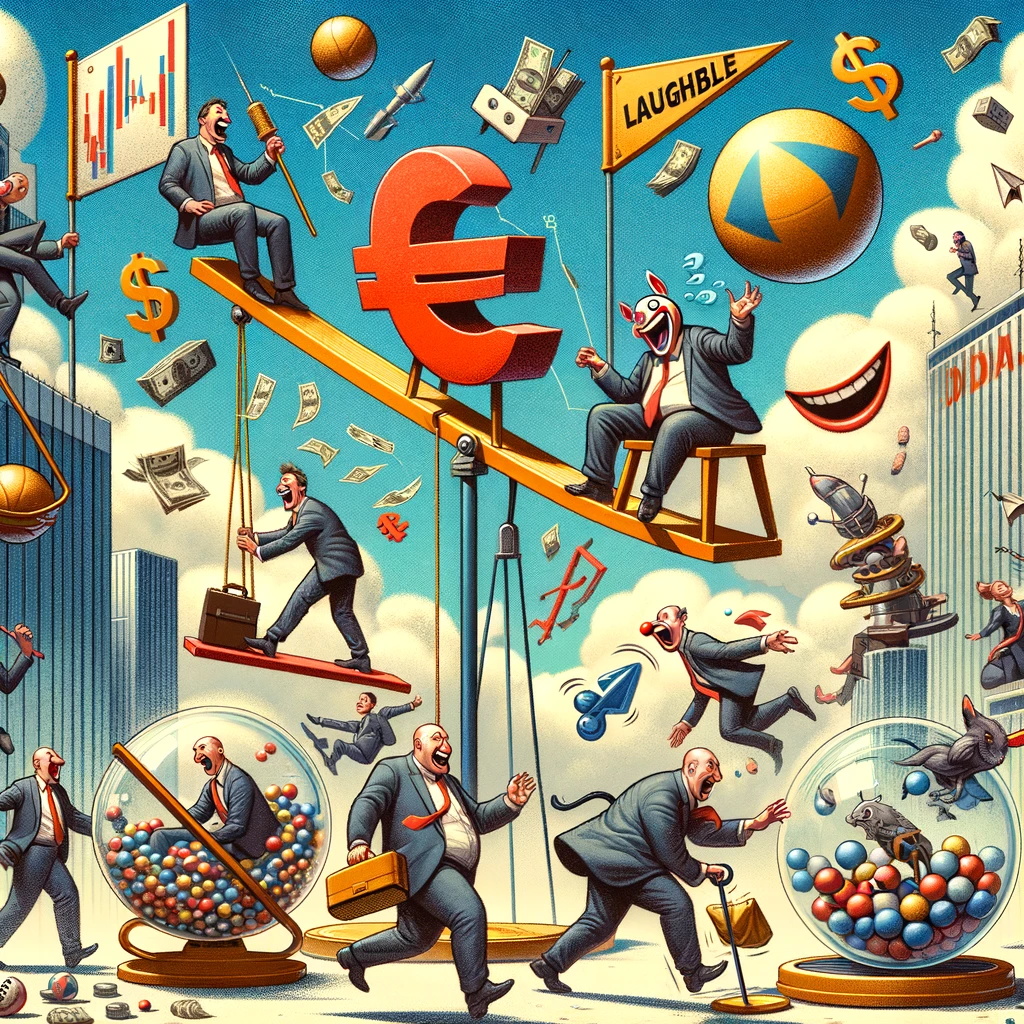The story of the global economy in 2024 seems a bit like a joke we’ve all heard before. Yet I’m not sure whether to laugh or cringe. As we dive into this year, the global economy paints a picture of a plane managing a soft landing despite turbulent winds.
While major economies show signs of resilience and growth, this veneer of optimism barely covers the underlying realities of a world that’s increasingly fraught with division, danger, and disparities.
Global Optimism: A Mask for Deeper Issues
Despite what might look like a series of fortunate events in the global economy—with the U.S. sidestepping the recession many feared and the UK finding its growth stride post-downturn—there’s more to this global narrative that meets the eye. These short bursts of growth are like fireworks that dazzle yet fade quickly against the night sky of geopolitical tensions and economic divides.
China, often seen as a barometer for the East, showed signs of economic pulse during the Lunar New Year as domestic spending surged. Similarly, an industrial reawakening in Germany hints at positive shifts. However, even with the International Monetary Fund’s optimistic revisions to global growth, expected to reach 2.9% in 2024, the celebrations are subdued.
As Central Banks globally have navigated the stormy waters of inflation without capsizing the economic ship, a sense of collective relief was palpable. Yet, beneath this calm surface, there are undercurrents of geopolitical strife—take the escalating tensions between Israel and Iran, for example, which threaten to ripple out and affect global economic stability.
The reconfiguration of the global economy isn’t just a reshuffle of geopolitical cards; it’s a complex, high-stakes game influenced by new technological powers like artificial intelligence and the shifting sands of global alliances. The impacts are far-reaching, potentially slowing down overall growth, and the gains that are made seem to be hoarded by a select group of wealthy nations.
From Global Tides to Local Shores
While developed countries navigate these choppy waters with a degree of caution and capability, developing nations find themselves up against the ropes. The dual crises of climate change and heavy debt burdens are squeezing economies dry, with governments left grappling with shrinking budgets and growing costs.
Food price spikes, partly due to conflicts like the ongoing war in Ukraine, have propelled a surge in migration, stirring political pots in wealthier countries. This migration isn’t just a movement of people; it’s a migration of issues—from economic to social—across borders.
Even as some corners of Wall Street bask in the glow of AI-driven market optimism, the broader picture remains one of caution. The anticipated economic expansion globally remains tepid at best, with predictions of a mere 2.1% growth by analysts from Citigroup Inc. Meanwhile, the specter of $100 oil looms large on the horizon, with potential wars adding to the already dense fog of economic uncertainty.
The divide between the economic opportunities available in the richest corners of the world and those in poorer regions is widening, which could lead to increasing social unrest and economic instability. In regions like sub-Saharan Africa and parts of Asia, the chasm between current economic conditions and those necessary for stable growth is vast and growing.
Local economies, particularly in less developed regions, are being hit hardest. The global move towards economic nationalism and skepticism about globalization’s benefits has seen rich countries pulling up the drawbridges. This inward turn threatens to isolate poorer nations, depriving them of the investments needed to jumpstart their economies.
Central banks globally are navigating a delicate balance. The expected rate cuts might offer a glimmer of hope, yet the pace at which these cuts will occur suggests a cautious approach to an uncertain future. This conservative stance, while potentially stabilizing, might also slow recovery in nations already teetering on the edge.
The global economy’s true joke might just be on us all if we continue to navigate these troubled waters without recognizing the interconnected nature of our challenges and opportunities.





